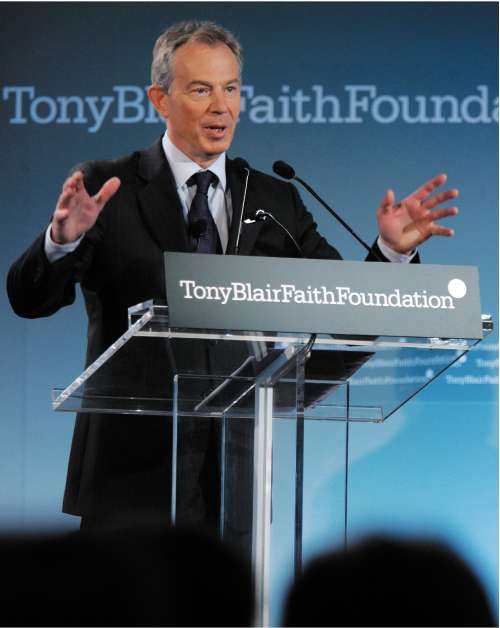Religion is the new politics: Blair reveals philosophy at launch of faith foundation

Your support helps us to tell the story
From reproductive rights to climate change to Big Tech, The Independent is on the ground when the story is developing. Whether it's investigating the financials of Elon Musk's pro-Trump PAC or producing our latest documentary, 'The A Word', which shines a light on the American women fighting for reproductive rights, we know how important it is to parse out the facts from the messaging.
At such a critical moment in US history, we need reporters on the ground. Your donation allows us to keep sending journalists to speak to both sides of the story.
The Independent is trusted by Americans across the entire political spectrum. And unlike many other quality news outlets, we choose not to lock Americans out of our reporting and analysis with paywalls. We believe quality journalism should be available to everyone, paid for by those who can afford it.
Your support makes all the difference.Such is the relentlessness of Tony Blair's public immersion into matters of faith these days that Alastair Campbell's "we don't do God" assertion in Downing Street has now been fully exposed for what it was: a skilful piece of diversionary spin.
Yesterday, the former prime minister was in New York, launching the Tony Blair Faith Foundation at the headquarters of Time Warner, having told Time magazine that promoting inter-faith dialogue and co-operation was "how I want to spend the rest of my life".
For Mr Blair, rhetorically and professionally, religion is the new politics. Introduced by Bill Clinton to a more sympathetic audience than he might receive in the UK, he said: "Religious faith will be of the same significance to the 21st century as political ideology was to the 20th century.
"In an era of globalisation, there is nothing more important than getting people of different faiths and cultures to understand each other better and live in peace and mutual respect; and to give faith itself its proper place in the future."
Despite his former press officer's now-cliched intervention, Mr Blair's interest in God was always bubbling beneath the surface. Though he had left Number 10, Mr Campbell may have winced when, asked in 2006 about the decision to invade Iraq three years earlier, Mr Blair told Michael Parkinson: "In the end, there is a judgement that ... if you believe in God, it's made by God as well."
But by then, Mr Blair was already planning the role that religion would play in his future life. In his Time interview, as well as taking a swipe at an overly secular Europe, Mr Blair admitted he had thought about the foundation for a "long time". In fact, while in office, he held behind-the-scenes meetings with a number of religious leaders and diplomats, discussing the practical implications of his new cause. He persuaded Ruth Turner, his loyal Downing Street aide who was caught up in the "cash for peerages" affair, to head the foundation. In March this year, in a sign of the continued pull of the man who has just been voted more influential than Gordon Brown in a poll of 1,000 business leaders, he poached his successor's appointments secretary, William Chapman, to be the foundation's policy director, as revealed by The Independent.
In April, in the crowning moment of his much-trailed conversion to Roman Catholicism, Mr Blair spoke at Westminster Cathedral, the British home of his new denomination.
When he is not negotiating in Jerusalem in his role as international Middle East envoy, Mr Blair seldom delivers a speech that is not laced with religious references. This week, he was lauded at the Class Day for graduates of Yale, where he has expanded his prolific portfolio by taking on a part-time role teaching about "faith and globalisation". Preaching his philosophy on life, he said: "Judge someone by how they treat those below them not those above them."
That Mr Blair, 55, "does God" is no longer in doubt, if it ever was. Whether he can translate that faith into practical solutions to solve some of the world's most challenging problems remains to be seen.
Speaking against extremism at a recent private meeting in a London mosque, Mr Blair was questioned by young Muslims who said his credibility is compromised after his role in Iraq and the "war on terror". One who knows him said: "He means well but the project needs more substance."
But as he pushes for progress on the Millennium Development Goals aimed at tackling extreme poverty, and floats the idea of followers of the three monotheistic faiths providing bed nets to eliminate malaria, Mr Blair is unlikely, at least, to be racked by self-doubt.
Join our commenting forum
Join thought-provoking conversations, follow other Independent readers and see their replies
Comments